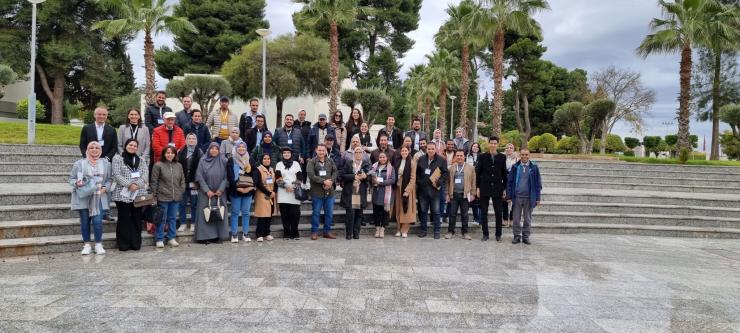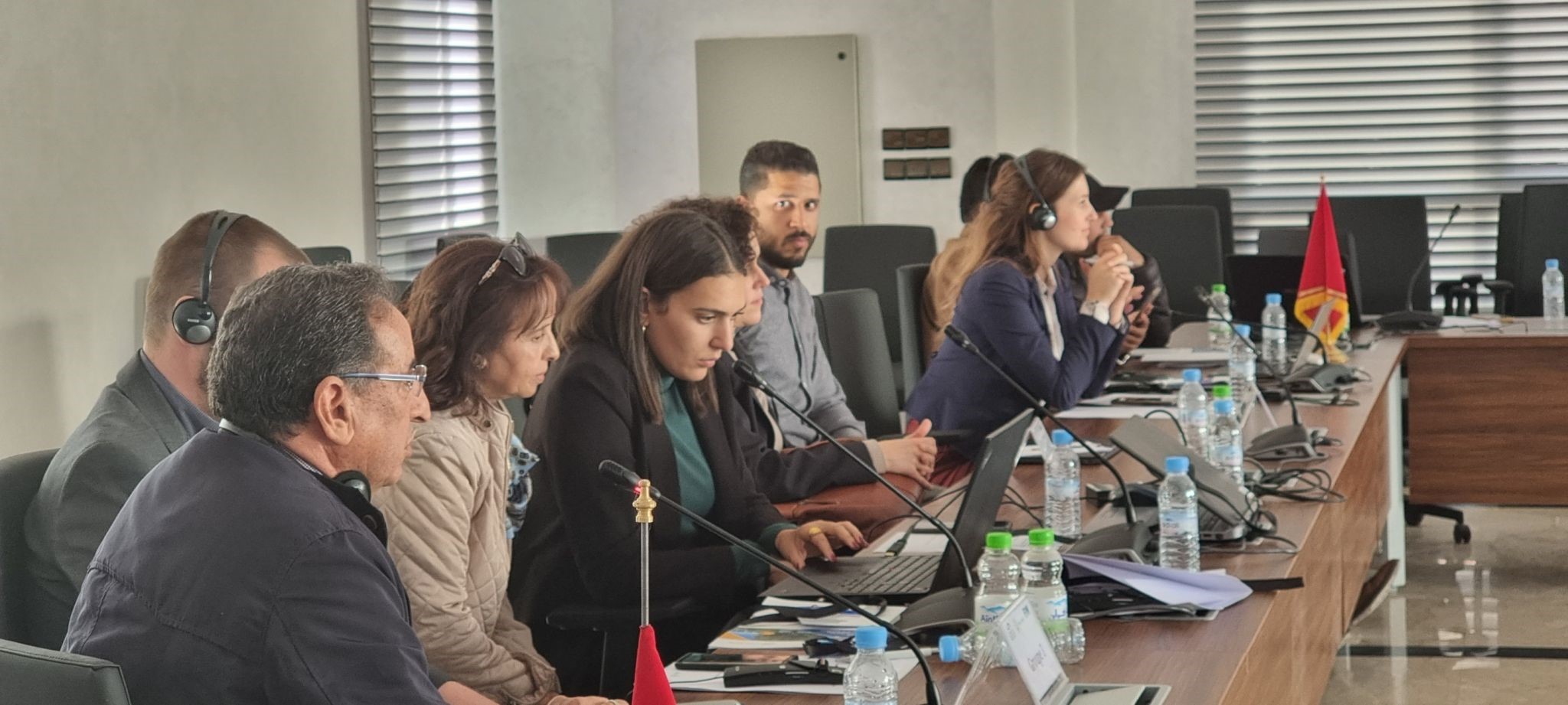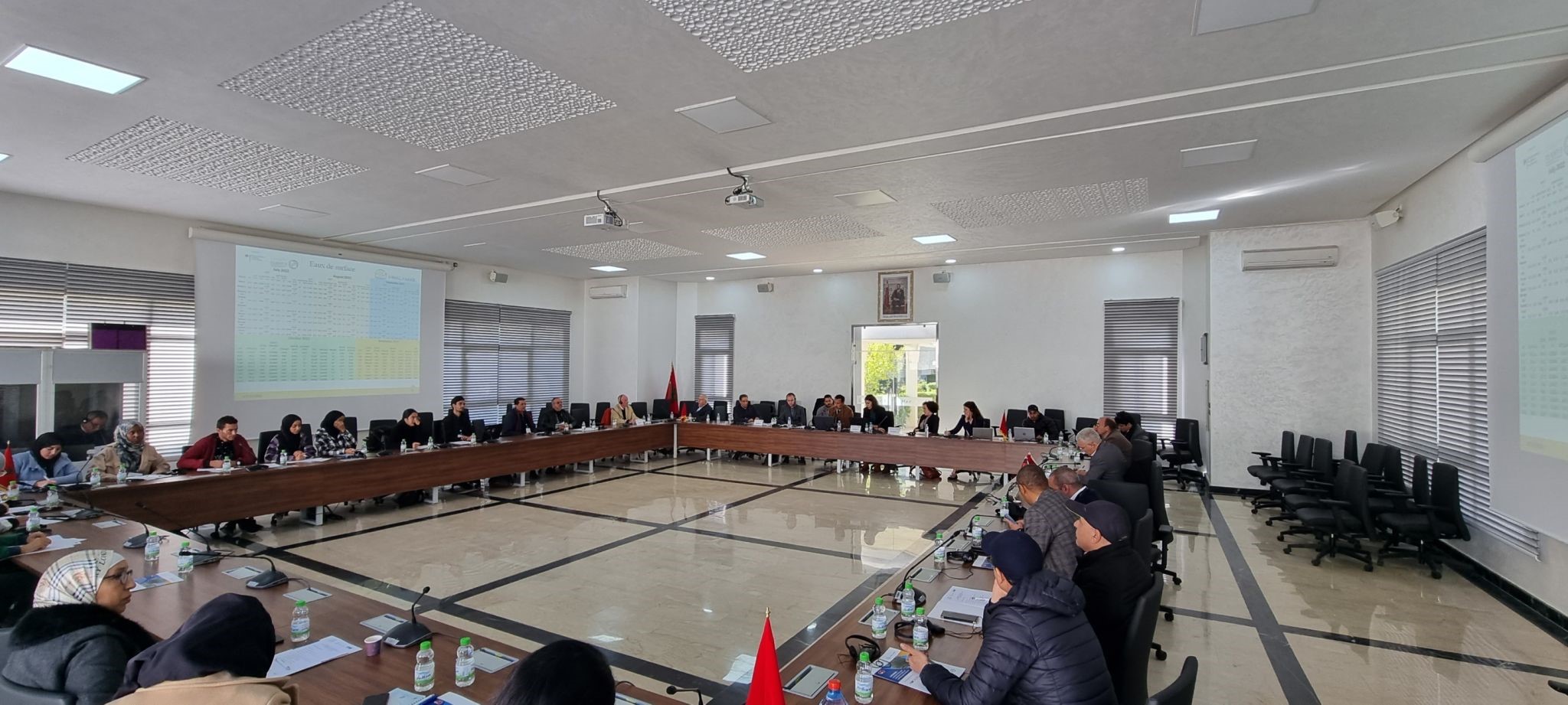

Successful End of the Moroccan-German Research Project I-WALAMAR to Improve Water Efficiency and Food Security
The final conference was held in Meknes, Morocco at the Moulay Ismail University (UMI) and the National School of Agriculture (ENA), where all project partners presented their results. In addition, a training day was organised at the ENA for agricultural advisors on how to apply the projects’ results in the field.

The project results show, how more food can be produced with less water. For example, hydrogels developed in the project can be used for this purpose. Progress has also been made on the degradability of hydrogels. Furthermore, the project investigated and evaluated the safe use of wastewater and sewage sludge for food production in Morocco. The results from Ain Taoujdate City, Morocco show how it can be used safely. Different approaches for the treatment and reuse of wastewater and residues from the olive industry were investigated as well. For example, the use of biogas in agriculture and the extraction of phenols from olive mill wastewater. Membranes made of clays from the Meknes region were developed to purify the wastewater and tested in a pilot plant at UMI. Many activities related to integrated water resources management have taken place, such as field missions for data collection and for design, construction and testing of a pilot station for wastewater monitoring, extraction and geoprocessing. Trainings and implementation of water resources monitoring and modelling were conducted as well in the course of the project.

Both the monitoring strategy and the water management model for the Sais plain have been finalised and will continue to be developed by the local partners after the end of the project.
For further information on the I-WALAMAR project, please visit the project website.
